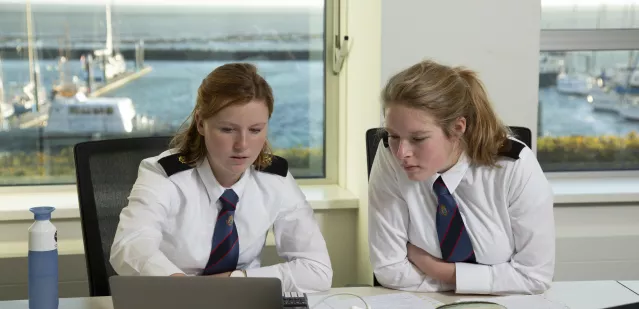MIWB receives Horizon funding for major European shipbuilding project

NHL Stenden's Willem Barentsz Maritime Institute (MIWB) is receiving financial support for a project for the first time from the European Union's Horizon Europe research and innovation program. This is SEUS: a major European shipbuilding project on which MIWB is working with seven other international partners over the next four years. Researchers, teachers and students from NHL Stenden are and will be involved in the project.
The main goal of SEUS (Smart EUropean Shipbuilding) is to create an integrated platform for smart and efficient solutions in engineering, assembly and construction at European shipyards through efficient integration and use of software tools.
Partners from all over Europe
In addition to MIWB, several partners are affiliated with the project. They come from all over Europe. Companies in the field of maritime industry (Ulstein Group from Norway and Astilleros Gondán from Spain) and software (CONTACT Software from Germany, Cadmatic Oy from Finland and SARC from The Netherlands). Two other universities are also participating: Norwegian University of Science and Technology (Norway) and University of Turku (Finland).
The project participants work closely together, but also have their own areas of interest. MIWB, for example, will deal with data design and cyber security, among other things, which is why the professorships Maritieme Innovatieve Technieken, Maritime Law and Maritime IT Security are affiliated. So the project group - led by Frederik Maats - is working together multidisciplinary within NHL Stenden, where not only researchers, but also lecturers and students can play a role. What is new is that within SEUS, a professional doctorate (PD) will be conducted at MIWB.
Horizon Europe
The SEUS project falls under the European Union's Horizon Europe research and innovation program. With this program, the European Commission aims to increase Europe's competitiveness by stimulating science and innovation. In addition, the commission wants to challenge industry and academia to work together to come up with solutions to societal issues across Europe.



